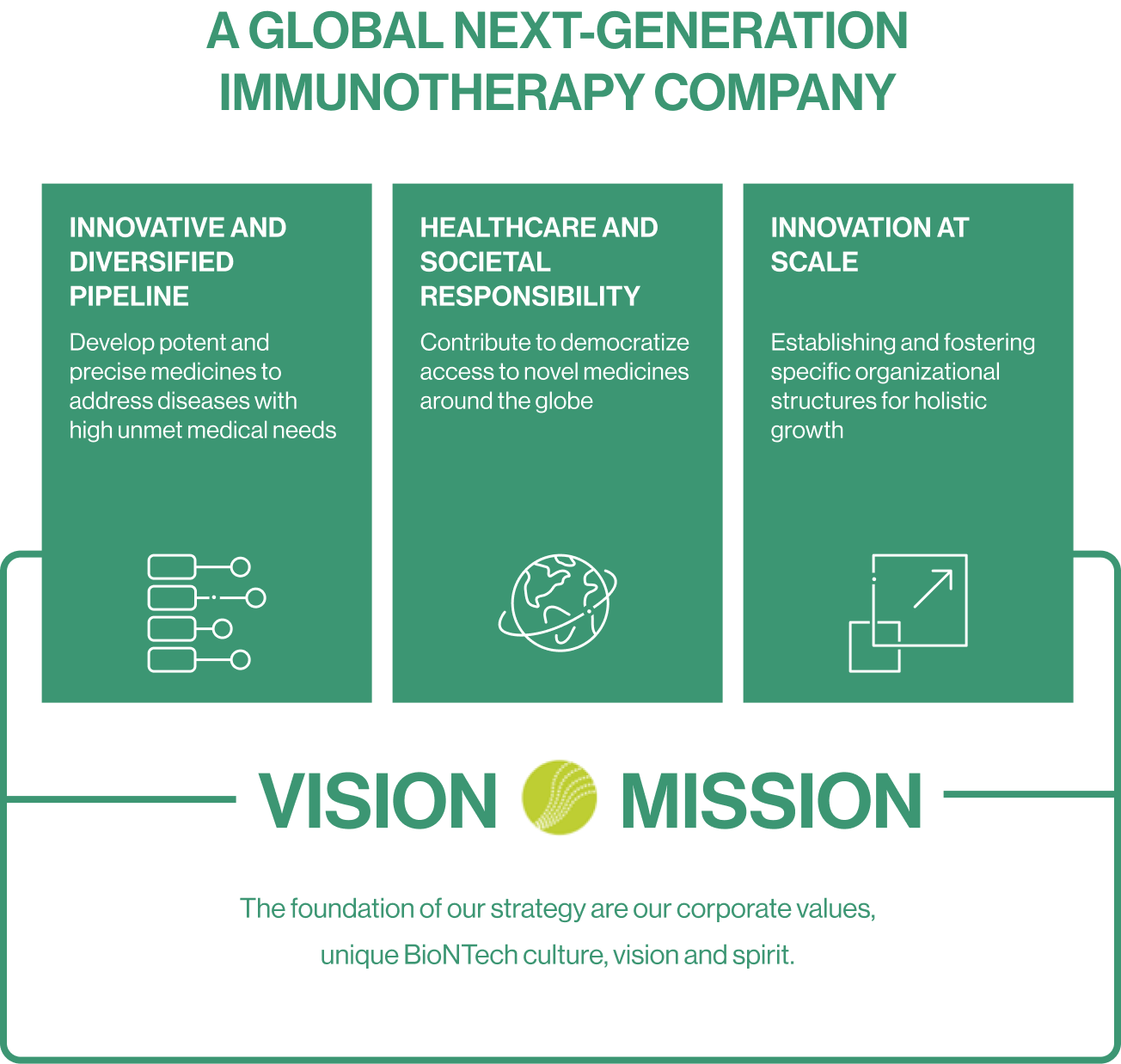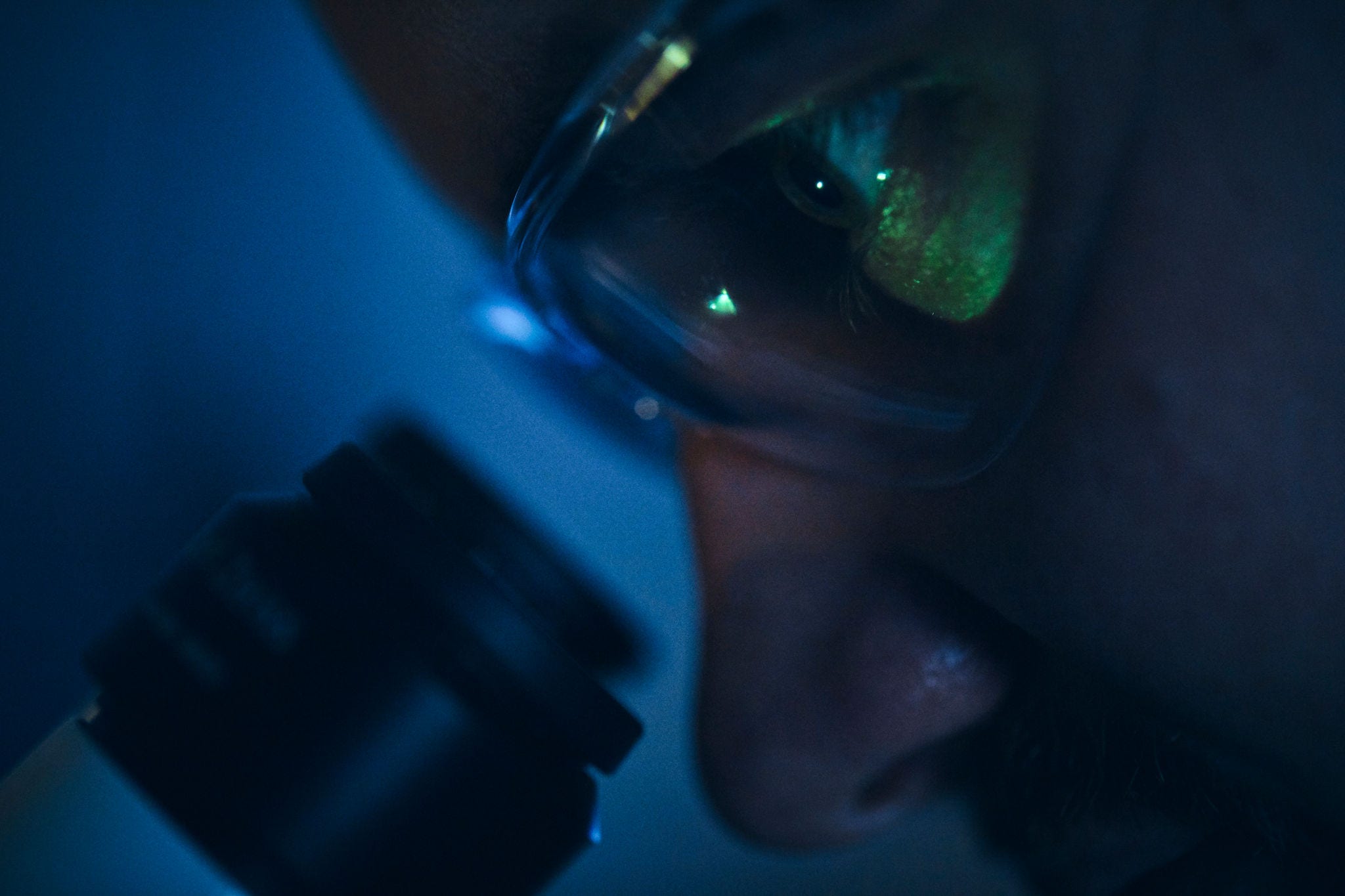Our commitment to better healthcare worldwide
BioNTech aspires to translate science into survival by addressing pressing health challenges we face as a global society. Based on our mRNA technology and our experience in the field of immunotherapies, we aspire to accelerate biomedical innovation against complex pathogens and deadly infectious diseases. BioNTech’s commitment to healthcare and societal responsibility is a key component of our three strategic pillars to turn our vision into reality.


Advancing our Infectious Diseases Pipeline
We are advancing and diversifying our infectious diseases pipeline, according to global health needs. We are progressing the development of prophylactic mRNA vaccines targeting infectious diseases such as tuberculosis, malaria, HIV and diseases with epidemic or pandemic potential, such as mpox. We also aim to contribute to a more equitable access to mRNA vaccines in low- and middle-income countries through our novel manufacturing capacities.
Clinical trials with tuberculosis, malaria, and mpox vaccine candidates are already underway. In line with our ambitions to increase access to novel medicines, if successfully developed and authorized by regulatory authorities, BioNTech plans to provide low- and middle-income countries with access to our potential tuberculosis, malaria, and mpox vaccines at a not-for-profit price.
Aiming to improve access with our manufacturing solutions
The COVID-19 pandemic has shown how an infectious disease can bring the world to a halt exceeding 3.4 million deaths in 2020, according to WHO reporting.1 The pandemic also exposed the great inequities in distribution.2
We want to improve healthcare by enabling equitable access, including priority access to select vaccines for LMICs and committed capacity to manufacture emergency response vaccines. To support this aim, we inaugurated our first BioNTainer-based facility on the African continent in December 2023 in Kigali, Rwanda, which is intended to manufacture at research, clinical and commercial-scale. The BioNTainers are designed as modular high-tech manufacturing units that enable the use of identical vaccine processes across the network, whether the facility is located in Europe, Australia, or Africa. This enables the BioNTainers to contribute to sustainable, equitable access to novel medicines, particularly in low-income countries and regions with limited infrastructure.
In addition, we aspire to manufacture mRNA-based cancer immunotherapies on the African continent once they are successfully developed and approved. This effort is highly relevant, as low- and middle-income countries are disproportionately affected by cancer cases.3
The modular and scalable manufacturing approach could allow us to set up turnkey manufacturing sites for mRNA worldwide. Once rolled out, the approach could support clinical trials as well as regional pandemic preparedness measures.
Working in Partnership to Build a Sustainable and Resilient Vaccine Ecosystem
We understand that the challenges we face are too big for any single entity to tackle them alone. Our commitment goes beyond developing innovation; we are working along the entire research and development chain to make a difference for those who need it most. The development of vaccines can only happen if we work in close partnership with local communities, researchers, and affected countries.
We work closely with partners including international organizations, governments and not-for-profit organizations across the globe, who share our efforts of building a sustainable and resilient vaccine ecosystem.
1 https://www.who.int/data/stories/the-true-death-toll-of-covid-19-estimating-global-excess-mortality
2 https://www.gavi.org/news/media-room/gavi-sets-course-support-sustainable-vaccine-manufacturing-africa-new-action-plan?gad_source=1&gclid=EAIaIQobChMIm_7bp8jYhgMVSZODBx1pJgBLEAAYASAAEgLtmPD_BwE
3 https://bmccancer.biomedcentral.com/articles/10.1186/s12885-023-11272-9

Contact
Global Health Office